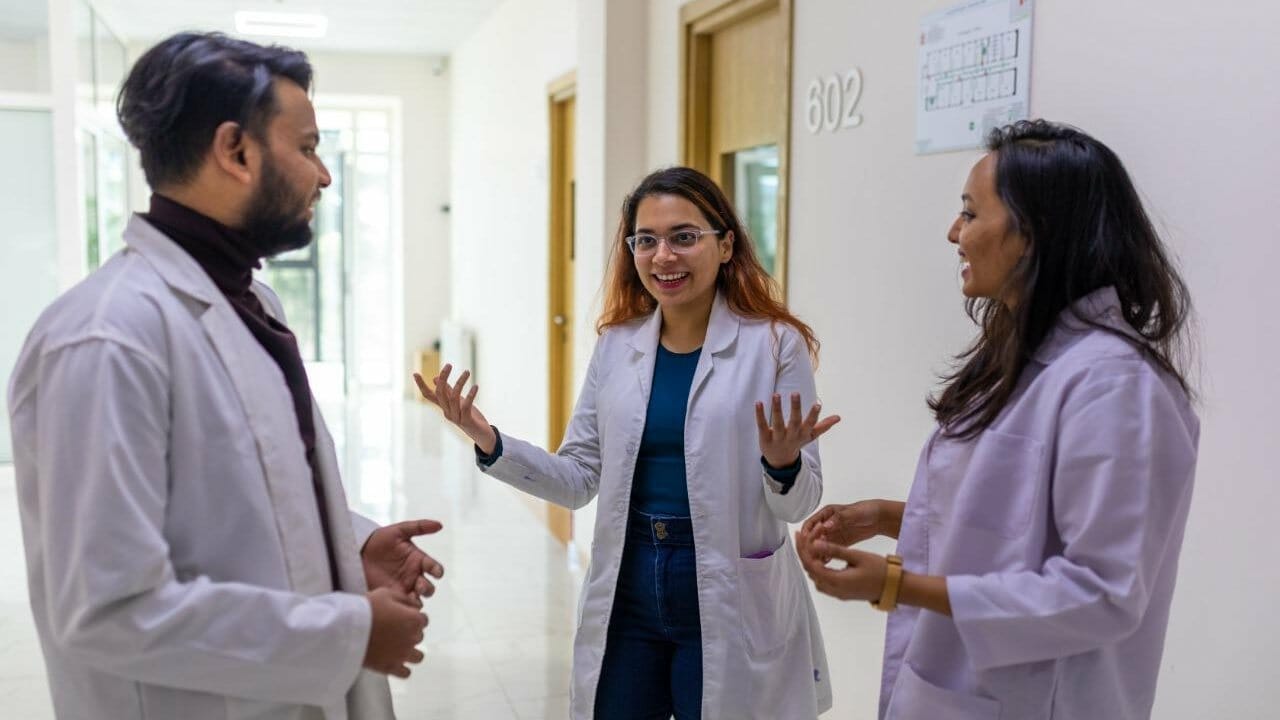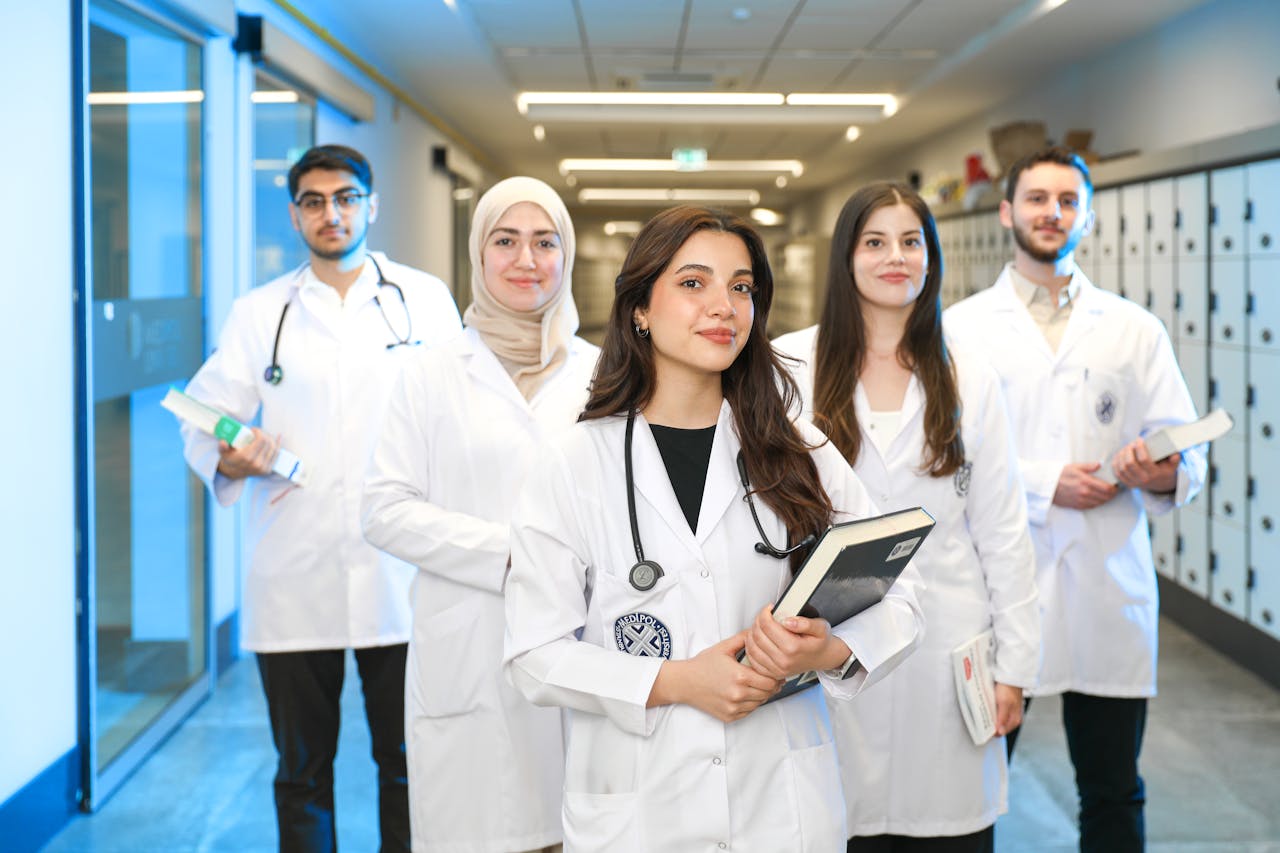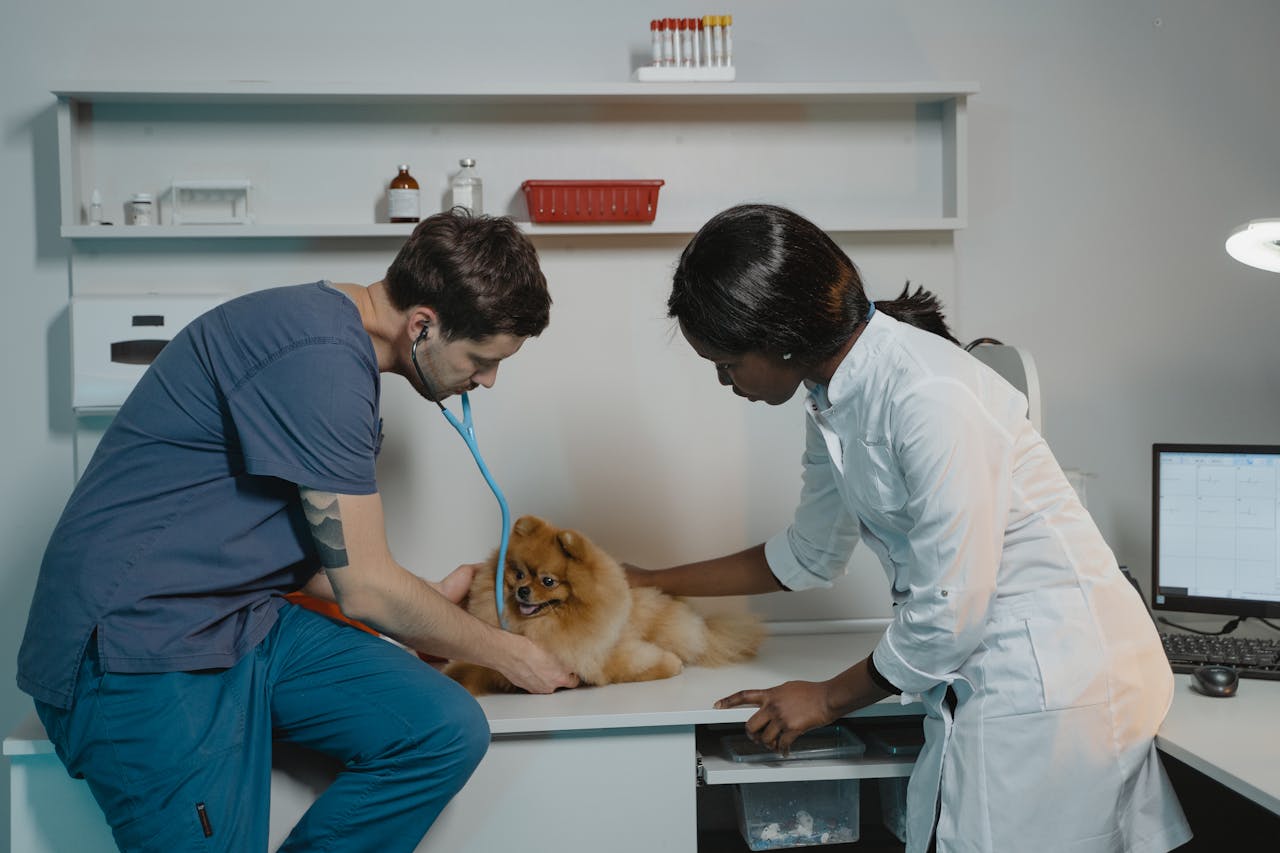What Do You Learn in The First 3 Years of Medicine in Europe?

Table of Contents
“Learning is the only thing the mind never exhausts, never fears, and never regrets.”
Leonardo da Vinci
In this post, we will answer one of the most asked questions, “What will I study in years 1-3 of the medicine programme?”. Our goal is to give you a detailed overview of the teaching system and course syllabus in European medical schools.
Medicine course structure in Europe
In Europe, medicine courses last 6 years. Usually, the first 3 years are theoretical, while the last 3 are practical/clinical rotations. There are more than 100 universities that teach medicine in English in Europe. Every medical school has its curriculum, but in general, all teach the same - the human body. The theoretical years of the medicine course are either identical or almost the same.
What do you study in the first year of medicine?
Years 1-3 are pre-clinical. This means that you will spend most of your time in the classroom. You will have lectures covering subjects such as Anatomy, Physiology, Pathology, Biochemistry, and Molecular Biology.
Fill in this form if you want a free consultation about medical school curriculums in Europe and what best fits you:
Check your email to Book a FREE call
with an expert advisor
Look at your promotions/spam folders, just in case.
As an international student, during the first and second semesters, you will have extra classes to learn the local language. This will help you understand the locals better and be extremely helpful when you start your clinical rotations in hospitals. Although specialist doctors will assist and translate, it will be much easier to communicate freely with patients. Plus, you will get a chance to create great friendships not only with other international students but with domestic ones, too.
As we mentioned earlier, during year 1, you will study Fundamental Subjects. These include:
Anatomy
Anatomy is a significant component of all first-year medical programmes. A knowledge of this subject is essential for doctors. You will study the anatomy of the body's many systems:
- Skeletal system
- Muscular system
- Lymphatic system
- Digestive system
- Integumentary system
- Respiratory system
- Nervous system
- Endocrine system
- Cardiovascular system
- Urinary system
- Reproductive system
Biochemistry
It explains the chemical aspects of biological processes such as digestion, hormone activity, and muscular contraction relaxation.
Physiology
You will often hear the sentence, “Physiology is the science of life.” In this module, you will learn everything about how the human body works. The studies include lectures about atoms, molecules, genes, organelles, cells, tissues, organs, organ systems, organisms, populations of one species, and ecosystems of different species.
To complete each subject/module, you will have to pass an exam or collect a certain number of credits/points. This is based on the university teaching system. In most cases, you will have 3 to 5 exams per semester.
Some medicine programmes include practice/clerkship after the 1st and 2nd semesters. For example, students at Medical University of Silesia have Nursing practice: 40 hours for the first semester and 80 hours for the second one.
The Medical University of Bialystok curriculum includes a clerkship after year 1, 120 hours.


What can you expect from the second year of medicine?
Most likely, the medicine course curriculum will include a Foreign Language 2nd part - you will get the opportunity to master the local language.
You will continue with Anatomy and Physiology part 2. The curriculum includes subjects such as:
- Parasitology
- Biostatistics
- Immunology
- Genetics
- Biophysics
- Social Medicine
Reserve Your Spot for Our Webinar
Discover what a typical day looks like for a medical student in Europe
Again, in European medical universities, you will get the chance to put your knowledge into practice. This may be Emergency Medicine (summer clerkship) or Outpatient Care Practice.
What do you learn in the third year of medical school?
This is the final pre-clinical year. During year 3, you will be introduced to Surgery, Paediatrics, Oncology, Environmental Health, Pharmacology, Medical and Surgical Semiology.
Moving forward in your education, you will participate in clinical rotations at hospitals. Future doctors will work alongside different medical teams and apply what they've learned in class to real-life medical situations.
Keep in mind that every university prepares its curriculum. This article gives you an overview of what a medical programme in Europe looks like in the first 3 years.
Summary of years 1-3 in medical school
We can say that the first years of medical school are a mixture of lectures and laboratory exercises. You will gain knowledge about the human body's structure, functions, and diseases. Future physicians can only move on to clinical training at hospitals by mastering the theoretical part.
Medical students are preoccupied with an enormous amount of information that they are expected to learn in such a short period of time. You will have to find time for studying while juggling interests such as hobbies, exercise, socialising, and day-to-day tasks.
Medlink Students team can assist you by giving you free revision resources, notes, and past exam papers. Older students can provide you with the best revision materials and help you prepare for each exam during your degree.
2 comments on “What Do You Learn in The First 3 Years of Medicine in Europe?”
Leave a Reply

About Medlink Students
Leading international recruitment company for medical students in Europe. British Council Certified Agents. 10+ years of experience and more than 10,000 students advised.









HI SIR/MADAM ,
I REALLY WANT TO KNOW SPECIFIC ENQUIRY ABOUT ADMITION AND COMPLETE EXPENDITURE FOR WHOLE COURSE ABOUT MY SON DAKSH HE WAS BACHELLARATE THIS YEAR IN SPAIN, PLS KINDLY REQUEST YOU TO GIVE ME A COMPLETE INFORMANTION ABOUT ADMISSION REQUIREMENTS AND SIX YEAR TUTION FEE AND YOURS CHARGES AS WELL
Hey! Thank you for contacting us. This is an excellent question that is best answered in person by one of our expert advisors. You can submit an application for free here https://www.medlinkstudents.com/apply/. It takes only 10 seconds, and one of our advisors will contact you as soon as possible.